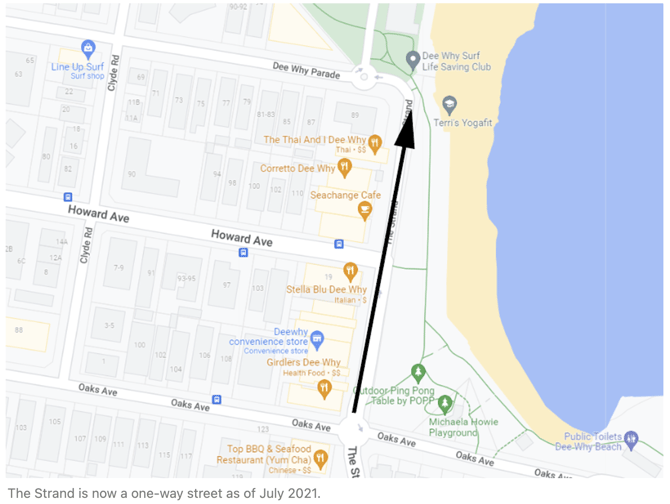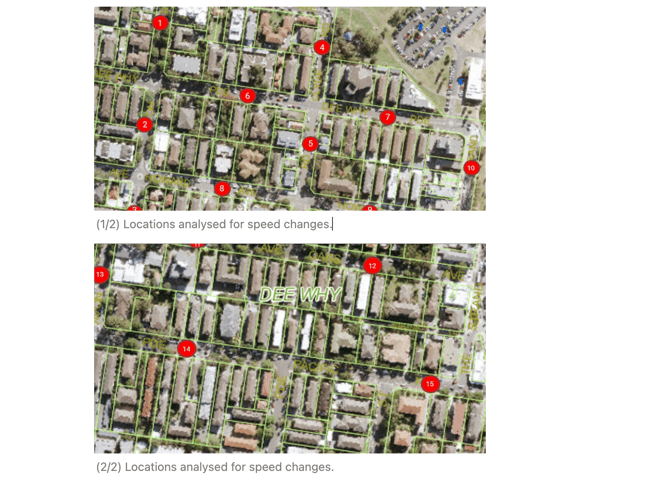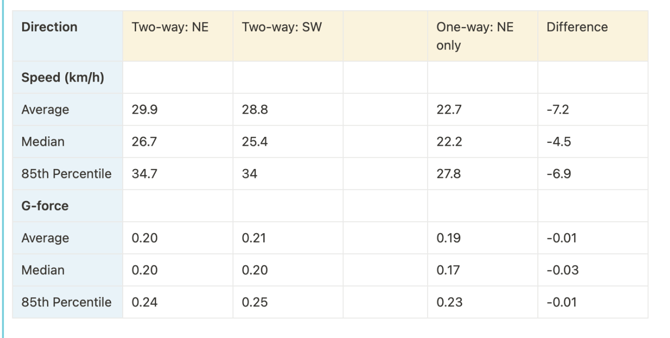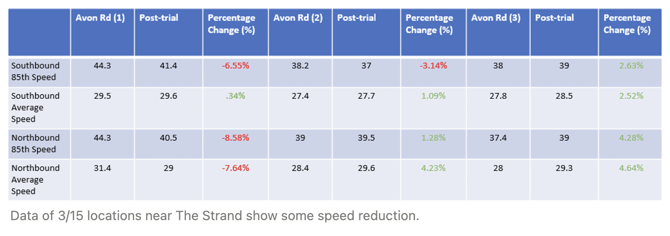Local and Surrounding Impacts of a One-Way Street
Using Connected Vehicle data for a Shared Spaces Program project
This case study uses Compass Road Intelligence
A NSW council is required to understand the impact of drivers’ and vehicle behaviour following the conversion of a two-way street into a one-way street as part of the Shared Spaces Program in NSW.
Aside from effects on the street itself, the trial required determining the impact of vehicular movements on the surrounding area. The street was also made into a one-way northbound street with outdoor eating areas and one bike lane.
This resulted in the re-distribution of traffic and the assessment required was to determine the changes in vehicle speeds and driver behaviour, especially at intersections which, the majority were controlled by roundabouts.

The areas analysed were The Strand, (two-way to one-way northbound), 15 road segments for speeds (average and 85th percentile), and the 6 intersections (in close proximity) for g-forces changes (braking, acceleration, swerving).
The dates used to compare the changes are before and after the implementation of the one-way trial.


Using Compass Road Intelligence, the results showed that the overall g-forces, average speed and 85th percentile speeds were lower after the implemented changes (see the first table below).
The speed at The Strand saw a decrease in both 85th and average speeds shown in the platform.



Data for the surrounding area also showed an average decrease in g-force and speeds as well. Most areas had a decrease in speed by 2-7% with some exceptions having a decrease of about 18%. There was an exception where one area saw an increase in speed to 5 km/h in one section of Clyde St. This increase was also below the posted speed limit. This data shows that these changes benefit pedestrians and increase driver safety (lower speeds and less sudden braking and swerving).
The quick way of determining and analysing traffic changes and vehicles before and after the implementation of LATM schemes is unique when using Compass IoT g-force data because the speed, braking, acceleration and swerving data originates from the vehicle itself and not from external sources (tube counts, cameras, observation etc).
The identified positive traffic change and improved vehicle behaviour provide great insight to the local community to understand how the implementation of the one-way scheme has improved driver behaviour, not only in the one-way street but also within the surrounding streets.
